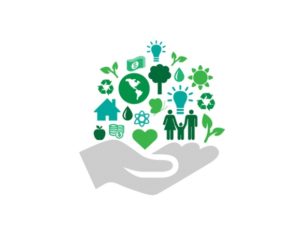 Do Inuit people spend their long, Arctic winter evenings discussing the finer distinctions to be made between 50 different varieties of snow? Do Greek lovers care very much about the accuracy of the word they choose to whisper into each other’s ears? I doubt it. Very few words demand that much consideration or lengthy debate but value is very different, even unique, in deserving our fullest and most special attention.
Do Inuit people spend their long, Arctic winter evenings discussing the finer distinctions to be made between 50 different varieties of snow? Do Greek lovers care very much about the accuracy of the word they choose to whisper into each other’s ears? I doubt it. Very few words demand that much consideration or lengthy debate but value is very different, even unique, in deserving our fullest and most special attention.
This single word appears to have such a wide variety of meanings and applications, yet it is used with scant precision. Used incorrectly, as it is, value is potentially the most dangerous word in common parlance. The 104 languages that Google can translate all seem to include a word equivalent to value: it appears no society can live without it. True, but we cannot thrive either if we continue with our universal misinterpretation.
Business page readers will be well acquainted with value being used in a wide range of contexts. Economic value is simplistically defined by economists: how do they factor in everything that matters when considering a new runway at Heathrow, for example? Should the ultimate decision be about profit or what we regard as valuable? Both terms are often used interchangeably yet have little in common; they are entirely different concepts.
Profit can be defined very narrowly as the difference between revenue and cost. Monetary value only has meaning when output and quality are included. If you buy a coffee the price is only one among many considerations; others include how much coffee you get, whether it tastes good and the ambiance in which you have to drink it. We call this everyday arithmetic common sense but we now realise just how limited this equation is. Today, other factors have to be accommodated; has there been any deforestation or slavery involved in the process of making it?
Both practices would have been legal 200 years ago but no doubt many human beings, even then, had values that declared this to be wrong. It has taken us this long to re-visit capitalism in the light of such evolutionary developments. The basis of the calculations has yet to catch up. At what level should we measure value? How about global value? Grossing up world GDP or conventional measures of ‘market value’ and ‘shareholder value’ might reveal something but ‘wealth’ is a measure of stored value and the planet has already stored up quite a few negative numbers on that count.
Microsoft has a huge market value today but some of that monetary value comes from very questionable values; associated with market domination and unfair competition. Some of its profits have been put to good causes by Bill and Melinda Gates; the eradication of malaria for one. But what is the final, societal sum of the total equation when customers of Windows and Office are forced to pay monopolistic prices? Who are the benefactors here and could more recipients have received a much higher value deal?
We can only answer this question if we all agree a common, and universally workable, definition of value. That will only come with intelligent design, not by chance. Capitalism has to be a total value system. Like any system, it has to have a clear and measurable purpose; or even a dual purpose. Traffic light systems aid safety while smoothing flow. Capitalism has to aid everyone on the planet as smoothly and cohesively as possible. The highest level of societal value can only come from the highest levels of human motivation, directly driven by human values. Otherwise, we will continue to live in a system without a social licence.
The vacuum left after the collapse in corporate legitimacy in 2008, has reinforced the ESG (environment, social, governance) investment sector’s claim to hold the higher ground; even while the majority of investors carry on as if nothing has changed. What ESG has failed to do so far though, is offer any clear and meaningful redefinition of corporate purpose and valuation. Until it does, corporations will still provide substandard governance because they will not be punished by lower stock valuations. Companies like Microsoft will try to buy a social licence through disconnected ‘good deeds’, rather than develop products with society as the primary stakeholder. The environment will continue to suffer until the loss in societal value, from short-termism, is properly measured and evaluated over the long-term.
We all need to agree our common purpose in terms of the best value for all stakeholders. In the absence of any better alternative, value has to be defined as the best possible quality products and services at the best possible cost and without undue harm to any stakeholders or the planet. Total Stakeholder Value must be measured with the environment built-in to business models, not bolted on. It is not governments or regulators who will get capitalism back on track but precise language, communicated well.
Comments are closed